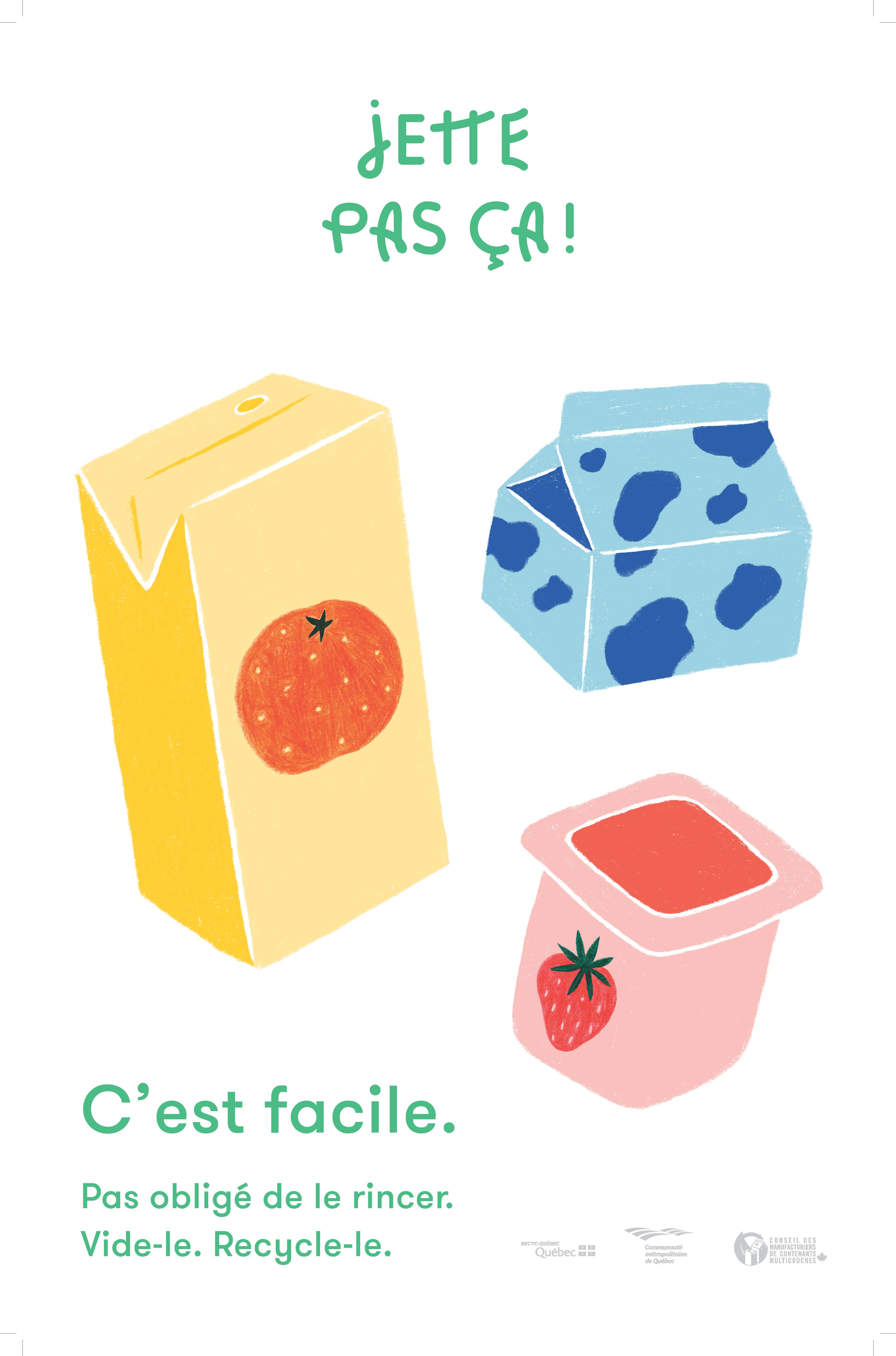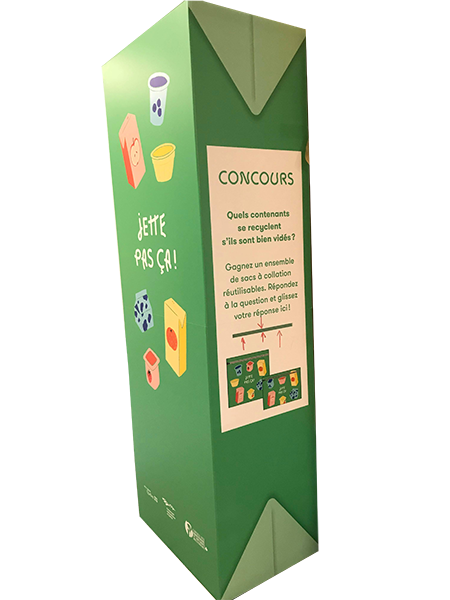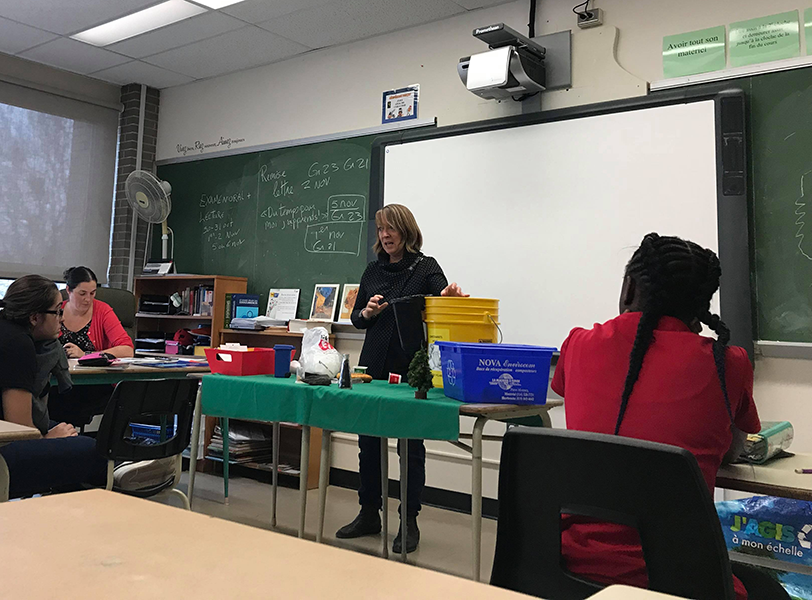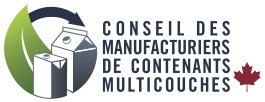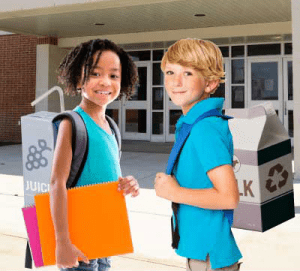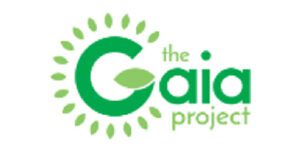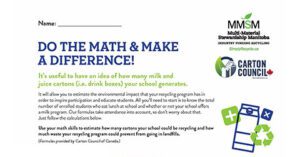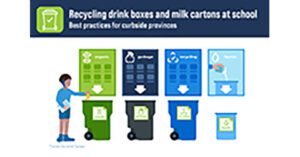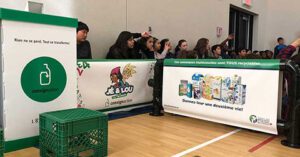Pilot Project with the Communauté Métropolitaine de Québec
Category: School Recycling Support
Time frame: October 2018–June 2019
Location: Quebec
Status: Completed
This was a Communauté Métropolitaine de Québec (CMQ)-led pilot project supported by CCC and RECYC-QUÉBEC which took place in the Quebec City Area from October 2018 to June 2019. The not-for-profit organization Quebec’ERE was retained to deliver educational presentations and to provide hands-on support to schools, while the consultancy Stratzer (formerly known as Chamard Stratégies Environnementales) was in charge of waste audits.
The “Don’t trash it” information and awareness campaign aimed to make students aware that, while it’s usually not possible to rinse containers at school, they can be recycled as long as they are empty. A press release announcing the launch of the project in October 2018 is available (in French). Two intervention methods were tested and documented in the ten (10) participating schools:
- Active method: half of the schools benefited from the presence of on-site facilitators who delivered educational presentations and “coached” them on good recycling practices. These schools also had the opportunity to participate in a contest which asked students to respond to a simple recycling-related question. Answers were deposited in a giant drink box container placed at a strategic location in the school. Prizes consisted of reusable snack pouches.
- Passive method: the other half of the schools received the same campaign materials (posters, etc.) but did not receive the in-person “coaching”.
Both groups of schools received additional recycling bins.
At the end of the 2018-2019 school year, waste audits were conducted to measure the effects of this campaign and to determine whether there was a difference in impact based on the two different approaches that were tested. The pilot project report (in French) was presented to the CMQ Board of Directors in mid-November 2019.
The results of the waste audits show that the capture rate of containers significantly increased following the implementation of the pilot project. The average capture rate went from 10.5% in the reference year (either 2014 or 2016) to 36.2% in 2019, which represents a 25.7% growth. In particular, the growth in the capture rate is more significant for the primary schools, going from 4% to an average of 55% (51.5% growth).
Moreover, the five schools who benefited from the active method performed better, on average, with an average capture rate of 45.7%, which represents an average increase of 33.7%.
Lastly, cartons saw a significant rise in their capture rate, in particular in primary schools. For the six participating primary schools, the carton capture rate went from 2.6% in 2014/2016 to 57.1% in 2019.
